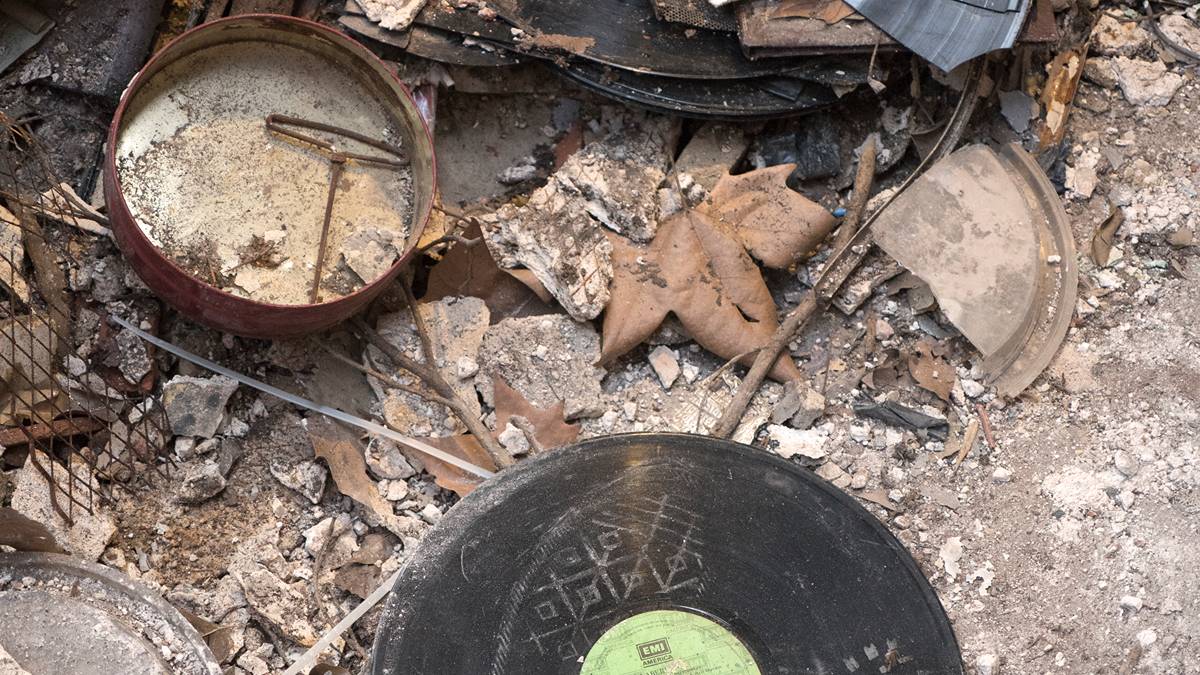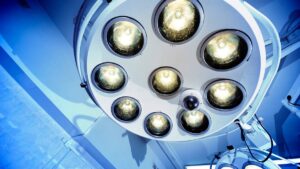Health Check: Promedicus shares smash record $300 barrier on back of mega deals

Promedicus shares have smashed a record – but not this one – by soaring over the $300 level. Pic via Getty
- Defying the sceptics, Promedicus announces $190 million of new US contracts
- Proteomics wins US reimbursement code for its diabetic kidney disease assay
- Morgans says Neurizon shares are worth almost triple their current value
Shares in tearaway radiology imager ProMedicus (ASX:PME) this morning surged close to 10% after the company announced two new US customer contracts worth a total $190 million.
The first win is a $170 million, 10-year contract with UCHealth, for the company’s suite of image viewing and storage tools.
The deal expands Promedicus into cardiology imaging, one of the adjacent ‘ologies’ the company has targeted.
UCHealth is a Colorado-based network of 14 hospitals, with affiliate clinics extending into Wyoming and Nebraska.
The second victory is a previously flagged renewal with the Louisiana-based Franciscan Missionaries of Our Lady Health.
This one has a minimum $20 million contract value over five years.
The deal renews a contract for the company’s Visage 7 viewer, at a higher per-transaction fee. It also provides the merciful missionaries with Visage 7 Open Archive, which offers “best-in-class interoperability”.
Promedicus CEO and co-founder Dr Sam Hupert says the deal shows there’s a “material opportunity” to upgrade Visage 7 to the bells-and-whistles open archive.
“Our pipeline remains strong and spans all market segments,” he chirps.
Silencing the naysayers
The latest deals should silence the Promedi-sceptics, who fear the $34 billion market cap stock is way overvalued.
In March, one fundie suggested the stock was being driven by ‘confirmation bias’: the notion that what’s worked well in the past will continue to do so.
See also: Commonwealth Bank (ASX:CBA).
Indeed, Promedicus shares trade on an extravagant price-earnings (PE) multiple of 200 times. This is based on current year earnings estimates.
But the PE used to be more like 300 times. Evidently stronger profits – rather than a lower share price – caused the contraction.
In February Promedicus shares hit $298 before pulling back by more than 30%. This was amid the US climate of fear enveloping healthcare stocks.
Painchek is on a roll – and it doesn’t hurt a bit
PainChek (ASX:PCK) reports strong uptake of its smartphone-based device for assessing pain when the patients – typically nursing home residents – are unable to do so.
The company says contracted annual recurring revenue grew by 10%, $5.4 million.
Net contracted licences (to nursing homes) increased 9% to 110,000, with no attrition.
Painchek dominates the local aged care market and has a decent share of the UK sector, which is one and a half times as big as Australia’s.
Painchek has a dominant position in the local aged care market and a decent share of the UK sector, which is one and a half times bigger.
The company also has a presence in Canada and has been chatting to the US Food & Drug Administration (FDA) about the path to US approval.
Painchek also is eyeing the bigger pre-verbal kids’ sector.
All up, Painchek has contracts with more than 1800 aged care facilities and had carried out more than 12 million digital pain assessments to date.
Today’s disclosure was a sales update rather than the full June quarter, so it didn’t get into the nitty-gritty of cash burn and such.
Proteomics wins US reimbursement code
If biotechs aren’t getting reimbursed in the US they might as well pack their bags and go home – if Customs have let them in to Trumpland in the first place.
So, we duly report that Proteomics International Laboratories (ASX:PIQ) has won a Current Procedural Terminology (CPT) reimbursement code, as granted by the American Medical Association.
While a CPT code sounds, well, procedural, it’s the standard lingua franca for public and private health insurance programs.
The CPT code is for Proteomics’ predictive blood test for diabetic kidney disease, Promarker D.
In the meantime, the Centers for Medicare and Medicaid Services will release its pricing for the test in September.
Promarker D is a simplified, immunoassay-based diagnostic that predicts accurately kidney function decline in adults with type 2 diabetes.
Studies showed Promarker D predicted the disease onset in up to 86% of otherwise healthy diabetics.
Is this the breast partnership yet for Bcal?
Still on tests, BCAL Diagnostics (ASX:BDX) has struck a commercial partnership deal with Cancer Care Associates (CCA), one of Australia’s biggest private oncology networks.
CCA will adopt Bcal’s Breastest Plus, the company’s non-invasive breast cancer diagnostic.
“Initially starting in Sydney, the collaboration is designed to accelerate the clinical uptake and validation with doctors,” the company says.
Designed as an adjunct to mammography, Breastest Plus analyses lipids in the blood. It’s intended for use for women with dense breast tissue, who are at higher risk of breast cancer than their ‘fatty’ breasted brethren.
Bcal dubs the tie-up as a “significant commercial milestone, establishing an additional pathway to market adoption and patient access through one of Australia’s most prominent oncology networks”.
The company expects initial revenue in the current financial year, “with expansion potential as clinical adoption grows”.
Bcal launched Breastest Plus locally on March 27, generating first revenue for the company. We’ll know more when the company releases its June quarter report later this month.
Morgans values Neurizon shares at a 160% premium
Broker Morgans says Neurizon Therapeutics’ (ASX:NUZ) deal with the maker of its repurposed drug candidate should save the company both time and money for little upfront cost.
Neurizon yesterday said it had entered into an exclusive global licensing agreement with Elanco Animal Health.
This enables Neurizon to access key data pertaining to monepantel, which had been approved as a sheep drench.
Monepantel is the active ingredient in Neurizon’s human drug candidate NUZ-101, to treat amyotrophic lateral sclerosis, ALS. ALS is the most common form of motor neurone disease.
Morgans says the access to the clinical and non-clinical data should “significantly truncate timelines” ahead of potential FDA approval.
The terms of the deal are “heavily back ended”, with a nominal upfront amount.
The company pays up to US$9.75 million in development milestones but most of the contingent amount – US$65 million – is based on sales.
“The time and risk saved is worth a small clip of the ticket and provides further incentive for Elanco to help Neurizon open doors to potential partners globally,” Morgans says.
While acknowledging the “considerable clinical risk”, Morgans reckons the stock is worth 42 cents compared with today’s opening value of 16 cents.
Related Topics

UNLOCK INSIGHTS
Discover the untold stories of emerging ASX stocks.
Daily news and expert analysis, it's free to subscribe.
By proceeding, you confirm you understand that we handle personal information in accordance with our Privacy Policy.








